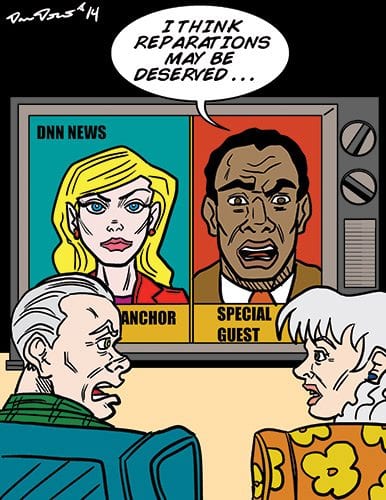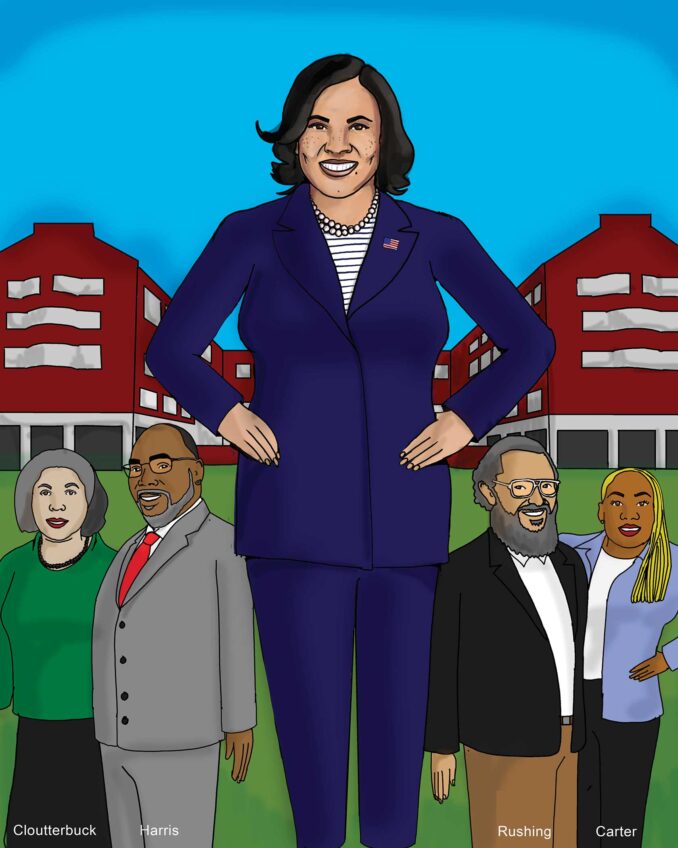Blacks need to implement an effective strategy to develop power and prosperity

John Conyers of Detroit was first elected to Congress in 1964. In every session he has filed a bill for Congress to consider reparations to African Americans. Year after year the bill has generated little interest. Several black intellectuals, including Randall Robinson and Charles Ogletree, have also made cogent arguments for reparations but with little result.
The question of reparations was brought to life again with a May 21 article by Ta-Nehisi Coates of the Atlantic Magazine. He entitles his article “The Case for Reparations: Two hundred fifty years of slavery. Ninety years of Jim Crow. Sixty years of separate but equal. Thirty-five years of racist housing policy. Until we reckon with our compounding moral debts, America will never be whole.” The title also serves as a bill of particulars to make it clear that Coates’ argument for reparations does not depend entirely on slavery.
A severely destructive aspect of slavery was that blacks had no right to keep families intact. Children were separated from parents, like selling off a treasure to the highest bidder. And husbands and wives were forcefully divorced by separate sales on the auction block. After slavery became illegal, blacks were dismissed from plantations with no property, no pension, and no way to provide for themselves in the inhospitable nation.
The notion of reparations was not at that time a foreign idea to Americans. After the Civil War Gen. William Tecumseh Sherman suggested that freed slaves be given 40 acres and a mule. This idea did not appeal to the Congress and President Andrew Johnson. Even today blacks can be heard to say, half in jest, “I’m still waiting for my 40 acres and a mule.”
However, the U.S. has paid reparations to its citizens. In 1988, the government paid $20,000 each to the more than 100,000 survivors of the World War II detention camps for Japanese residents. After Pearl Harbor there was a great panic on the West Coast that residents of Japanese origin were potentially allied with the enemy. Therefore, the U.S. government incarcerated them indiscriminately.
John C. Calhoun, the senior senator from South Carolina, aptly stated in 1848 the nation’s social pecking order. According to Coates’ report, Calhoun declared that “the two great divisions of society are not the rich and poor, but white and black. And all the former, the poor as well as the rich, belong to the upper class, and are respected and treated as equals.”
America then became a predatory society in which blacks could be plundered by whites with relative impunity. Coates provides a personal perspective of that process with a touching biographical account of the travails of Clyde Ross as his family moved from Mississippi and then on the Great Migration to Chicago.
Coates does not provide an accountant’s assessment of the losses suffered by blacks from racial discrimination to determine the value of prospective reparations. Nor does he provide a strategy for distribution. However, one cannot read Coates’ account without concluding that a debt is owed.
There is inadequate determination in America to resolve the problem of racism, so what is plan B? What is the strategy to develop power and prosperity for blacks despite the racial barrier? The assertion by Sen. Calhoun of inferior status for blacks has never been repudiated. That is the black leadership’s conundrum.






